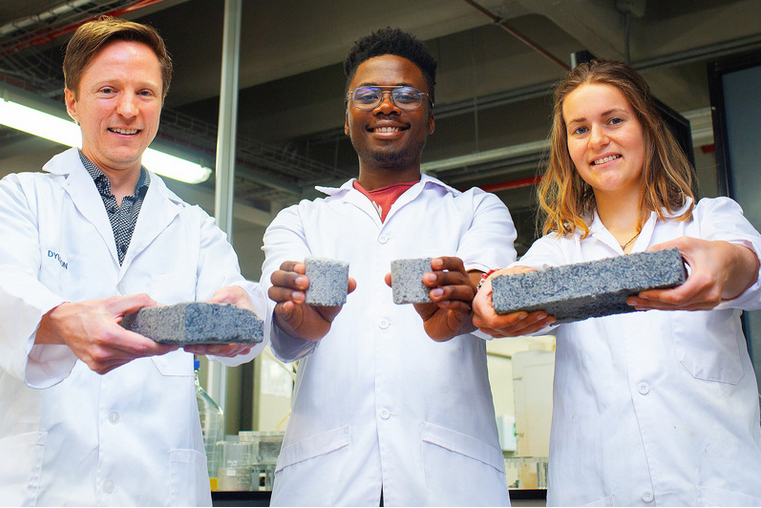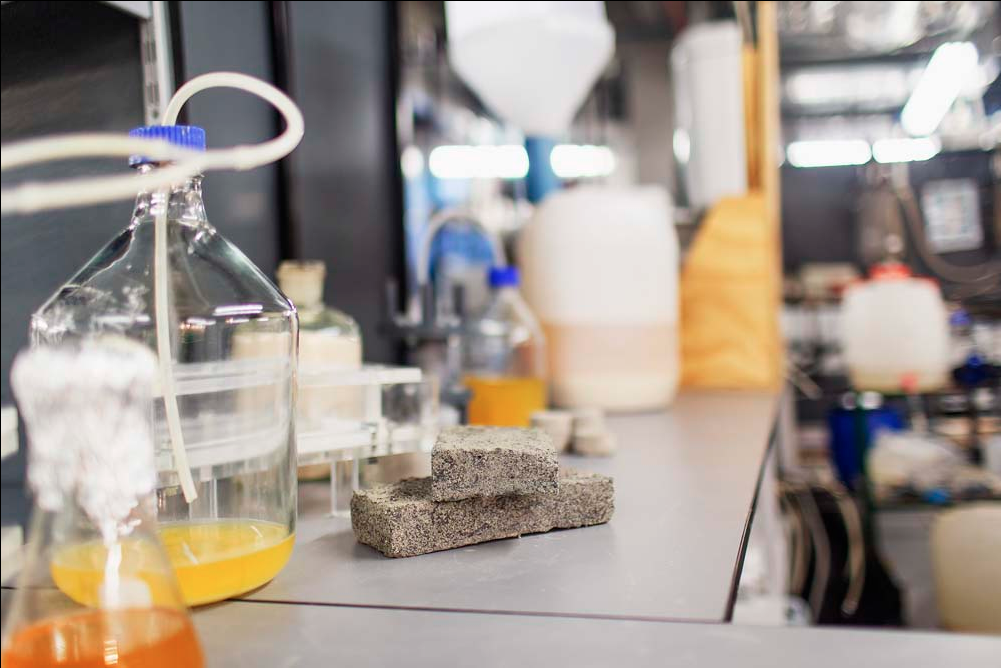Researchers from the University of Cape Town have produced the world’s first bio-brick from human urine.
Dyllon Randall, a senior lecturer at the university, said the bricks were created using microbial carbonate precipitation, a process similar to the way seashells are formed.
The process involves mixing loose sand with urease, a protein that breaks down the urea in urine while producing calcium carbonate, which can cement the sand into any shape.

Suzanne Lambert, a master’s student in civil engineering, added that the strength of the bio-bricks could be adjusted. “If a client wanted a brick stronger than a 40% limestone brick, you would allow the bacteria to make the solid stronger by growing it for longer,” she said.
The bio-bricks are made in molds at room temperature, as opposed to traditional bricks, which are kiln-fired at temperatures around 1,400°C and produce vast quantities of carbon dioxide.

Synthetic urea has been used to grow bricks previously, but the research is the first time human urine has been used as a source for it.
The process of making the bricks produces nitrogen and potassium as by-products, which are used in commercial fertilisers.
Images courtesy of the University of Cape Town
Comments
Comments are closed.







That is taking waste to the ultimate congratulations
Further to the above United Utilities manufactured bricks from human excrement quite sometime ago they still hold the patent for this process. The process may have been of use to dispose of excrement in such places like Kandahar airport due restrictive disposal and the growing volume for disposal. The two main disadvantages at the time were they could only produce black coloured bricks and they were uneconomical to deliver over a 20 mile distance.
i wonder what type of time scale they are talking about for this product?
Well done friends. In recent times the urine ends in the river, with this advanced technology that practice will stop forever. then the new technology will reduce the global warming, consumption of energy. So it is really an sustainable invention.
A welcome development to sustainability.